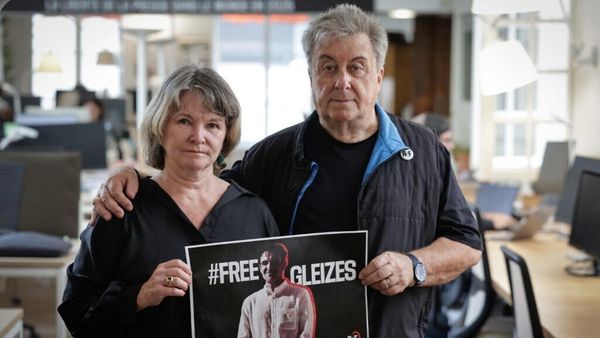
Newly-inaugurated U.S. President Donald Trump gave TikTok a brief reprieve on Monday, giving the Chinese-owned social media app a few more months to find a U.S. buyer.
TikTok briefly went dark for U.S. users for about 12 hours on Sunday, with the company blaming a lack of clarity from the Biden administration and the Department of Justice for the brief suspension. When it came back online, the platform publicly thanked Trump for his efforts to bring TikTok back online. On Monday, Trump ordered the Department of Justice to delay implementing the ban for 75 days.
But amid his flurry of executive orders, Trump floated the idea of punishing China if a TikTok deal couldn’t be reached. “If we wanted to make a deal with TikTok, and it was a good deal…then I think ultimately [China would] approve it because we’d put tariffs on China,” Trump said in the White House on Monday evening.
And if no deal was reached, Trump warned, “then that’s a certain hostility and we’ll put tariffs of 25, 30, 50%, even 100%.”
Trump has threatened steep tariffs on China both during his campaign and after winning office. Yet the new President’s first tariffs are not falling on China, but instead on the U.S.’s neighbors, Canada and Mexico. Trump said he would impose 25% tariffs on the two countries by Feb. 1, and also said he might consider a universal tariff on all U.S. imports.
Finding a deal
Trump’s executive order now buys time for the administration to find a solution for TikTok to keep operating while satisfying national security concerns, or for TikTok’s Chinese owner ByteDance to work out a deal with an American company to keep operating in the U.S.
Former president Joe Biden signed bipartisan legislation in April last year that required ByteDance to sell TikTok by Jan. 19 if it wanted to keep operating in the U.S. That deadline could be extended by 90 days, but only if a sale was in process.
Trump’s intervention upon taking office for the second time represents an about turn on how he views the app. In his first term, Trump tried to ban TikTok and Chinese messaging app WeChat, over national security concerns. U.S. courts blocked the ban.
On Sunday, before the inauguration, Trump suggested that a joint venture was the solution to the TikTok problem. Trump wrote on his Truth Social platform that he “would like the United States to have 50% ownership position in a joint venture” and said that would keep TikTok in “good hands.”
A joint venture might not address Washington’s national security concerns, such as Beijing’s alleged access to U.S. user data.
Beijing might also need to sign off on a TikTok joint venture. The Chinese government added algorithms to an export control list in 2020, which means it must approve any deal that transfers such technologies developed in China to a non-Chinese company.
Still, Trump has shown greater warmth towards TikTok than he did previously. TikTok CEO, Shou Chew, sat next to Tulsi Gabbard, Trump’s pick to be the director of national intelligence, at the inauguration.
“I guess I have a warm spot for TikTok that I didn’t have originally,” Trump said on Monday.







